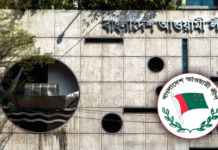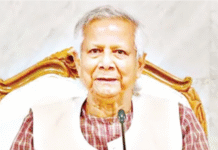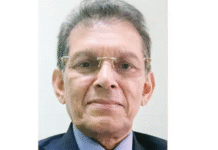Activists, sponsors to be punished for ‘destructive’ activities since July last year
The government is working to identify the sources of Jamaat- Shibir funds used to conduct “terrorist” and harrowing activities during their political programmes in the recent months.
Finance Minister AMA Muhith has directed the Financial Intelligence Unit of the Bangladesh Bank to take necessary action, with the assistance of the home ministry, to unearth the sources of money.
The directives came as those funds were used in the countrywide destruction carried out during the 55 days of hartals and blockades since July last year, several officials of the finance ministry told the Dhaka Tribune.
The minister recently told the officials concerned that the activists and sponsors of 19-party ally Jamaat-e-Islami and its student wing Islami Chhatra Shibir should be punished for its “destructive” activities under the existing laws related to money laundering and terror-financing.
The government had already brought in the necessary changes to the Anti-Money Laundering Act, 2012 and the Anti-Terrorist Act, 2009, Muhith said.
Three years ago, the names of two local banks – Social Islami Bank Ltd and Islami Bank Bangladesh – came up in a US panel probe report on HSBC over terror-financing.
Jamaat, a party banned after Bangladesh’s independence in December 1971, has come a long way and emerged a party after it was allowed to operate in 1979. In 1976, former Jamaat leader Abdur Rahim launched a new political party, the Islamic Democratic League, which was essentially Jamaat in a new guise.
On August 1 last year, the High Court declared Jamaat’s registration with the Election Commission illegal saying that its party charter was contradictory with the country’s constitution and the election rules.
Subsequent governments since 2003 banned five Islamist outfits – Shahadat-e-al Hikma on February 9, 2003; Jama’at-ul Mujahideen Bangladesh (JMB) and Jagrata Muslim Janata Bangladesh (JMJB) on February 23, 2005; Harkat-ul Jihad al-Islami (Huji) on October 17, 2005; and Hizb-ut-Tahrir on October 22, 2009.
Finance ministry sources said the Financial Intelligent Unit was working to find out the sources of funds with which the activists had conducted attacks in Jamaat-dominated Satkhira, Chapainawabganj, Dinajpur and several other districts before and after the January 5 parliamentary election.
The minister has also stressed the need for further amending the Extradition Act, 1974 to take assistance the foreign countries if the local terrorist financers were hiding in other countries.
“If a person finances Jamaat–Shibir from outside the country, the government will bring that sponsor back to the country under the Extradition Act inked with 139 countries including the Middle-East,” he said.
Sources at the Finance Division said during the recent demonstrations by the BNP-led opposition alliance, it was Jamaat and Shibir activists who were seen on the streets, though mostly in the hit-and-run attacks.
They are also blamed for the random use of petrol bombs, hand bombs and gun powder to burn and kill scores of people and destroying property of the state. The party is also criticised for torching over 500 educational institutions which were set to be used as polling centres during the January 5 election.
Source: Dhaka Tribune










